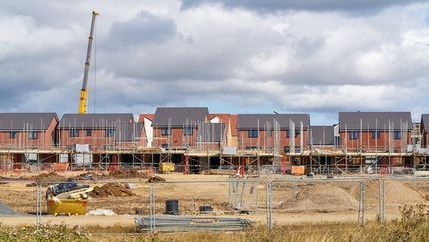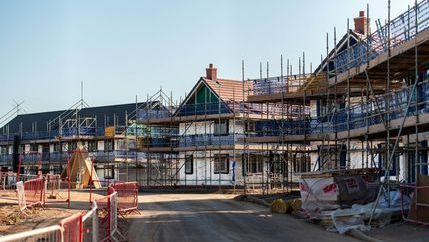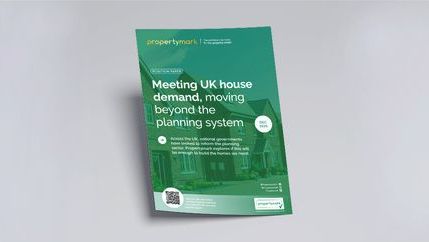
It’s time to think like champions
As the UK housing market wrestles with chronic under-supply, outdated planning frameworks, and affordability pressures, perhaps it’s time to take a cue from football. If success on the pitch is built on strong foundations, why should housing be any different?
The Lionesses have shown what’s possible with vision, strategy and long-term backing. The housing market could learn a lot from their playbook. If we want to solve the housing crisis, we must treat it as seriously as we treat our national sports teams — with infrastructure, planning and teamwork.
The power of long-term investment
The transformation of women’s football in the UK didn’t happen overnight. It took years of investment in facilities, coaching networks, and visibility — often against the odds. The Football Association’s Gameplan for Growth (launched in 2017) set out clear objectives, timelines, and investment strategies to professionalise the women’s game. Just five years later, the Lionesses delivered the nation a historic victory.
Compare this to the UK’s housing approach over the last 20 years: piecemeal planning reforms, constantly shifting policy objectives, and a lack of coordination between national and local government. The result? Fewer homes delivered than needed, rising rents, and a system increasingly unfit for purpose.
Infrastructure first: A game-winning strategy
Sport understands the importance of infrastructure — not just stadiums, but training grounds, academies, and community facilities. In contrast, housing delivery often stumbles on the lack of supporting infrastructure. Developments stall because roads, schools, GP surgeries and public transport aren't in place, or aren't funded early enough in the process.
The UK Government’s recently revealed Modern Industrial Strategy, which includes plans for a £600 million strategic sites accelerator fund and a National Housing Bank, looks promising, but will rely on proper consultation and partnership to deliver genuine benefits. Propertymark is monitoring policy development and remains committed to providing representation to ensure the best outcomes for agents and the wider property market.
Talent pipelines — And housing pipelines
Just as football invests in youth academies and coaching pathways, the housing sector needs a reliable pipeline of land and planning permissions. That means local plans that are up-to-date, land that is ready to build on, and planning departments that are properly resourced.
The current system too often sets up bottlenecks. In 2023, only 39% of councils had an up-to-date local plan, and under-resourced planning departments are struggling to meet statutory timeframes. Without reform, it’s like asking a football team to play without knowing the rules or the pitch layout.
The Planning and Infrastructure Bill, currently making its way through parliament, aims to modernise the system by empowering local authorities, streamlining processes, and promoting rapid housing development. Propertymark has welcomed this commitment from the UK Government but cautioned that the legislation must deliver homes with improved transport links, adequate schools and medical centres, as well as focusing on accessible properties for an ageing population, and homes that are net-zero ready.
Joined-up thinking for national sucess
The Lionesses’ triumph didn’t just happen because the FA planned. It happened because the government, sports bodies, broadcasters, and communities pulled in the same direction. The same should be true for housing.
Cross-departmental coordination is essential: planning, transport, energy, digital infrastructure, and housing must be treated as interdependent, not siloed. A national housing strategy — clear, funded and long-term — would provide certainty for developers, investors and local authorities alike.
In July 2025, the UK Government published a policy paper, Delivering a Decade of Renewal for Social and Affordable Housing, which paves the way for a wider long-term housing strategy. It includes five steps designed to reinvigorate housebuilding through funding, regulation, and sector partnerships.
Planning reform with a purpose
Calls for planning reform aren’t new — but they often miss the mark. It’s not just about speeding up approvals or removing red tape. It’s about clarity, ambition and outcomes. The FA didn’t grow the women’s game by deregulating it — it did so by setting clear goals, investing in delivery, and measuring success.
Planning reform must do the same: empower local authorities with tools and funding, reward ambition, and focus on delivery over process.








